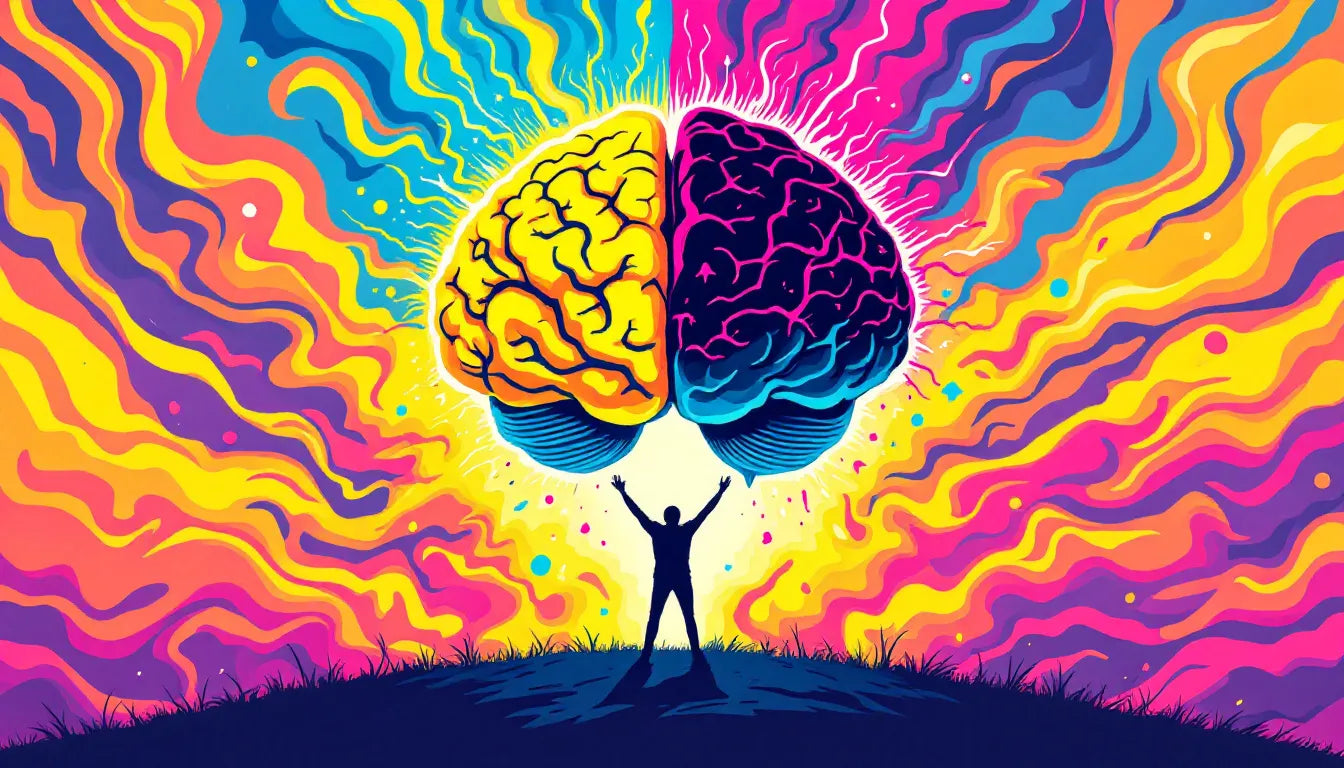- 🧠 A study from Scripps Research suggests that alcohol use disorder (AUD) and Alzheimer’s disease (AD) share common genetic pathways tied to neuroinflammation and neuronal damage.
- ⚠️ Long-term alcohol consumption may accelerate Alzheimer's progression by worsening neurodegeneration and vascular dysfunction.
- 🧬 Researchers identified overlapping gene expression patterns in neurons, immune cells, and blood vessels in both conditions.
- 🔬 Neuroinflammation, synaptic dysfunction, and blood-brain barrier breakdown are key mechanisms linking alcohol abuse to heightened Alzheimer’s risk.
- 🚀 Reducing alcohol consumption and adopting brain-protective habits could be crucial in minimizing Alzheimer's disease risk.

Does Alcohol Use Disorder Worsen Alzheimer’s?
Alzheimer’s disease (AD) is a devastating neurodegenerative disorder that leads to memory loss, cognitive decline, and ultimately, loss of independence. While aging and genetics remain the strongest risk factors, research increasingly suggests that lifestyle choices, including alcohol consumption, can influence disease progression. A study from the Scripps Research Institute reveals a striking genetic overlap between alcohol use disorder (AUD) and Alzheimer’s disease, particularly in pathways related to inflammation, nerve cell damage, and blood vessel dysfunction. This raises significant concerns about whether excessive alcohol consumption could worsen Alzheimer’s symptoms—or even accelerate its onset.

Understanding Alzheimer’s Disease
Alzheimer’s disease is the most common cause of dementia, affecting approximately 7 million Americans, a number projected to double by 2060 due to the aging population. This progressive disorder severely impacts memory, cognition, and daily functioning and follows a predictable trajectory:
- Early-stage Alzheimer’s: Mild memory lapses, mood changes, and difficulty with complex tasks.
- Moderate-stage Alzheimer’s: More pronounced memory loss, confusion, difficulty recognizing familiar faces, and trouble with speech.
- Late-stage Alzheimer's: Severe memory impairment, inability to communicate, complete dependence on caregivers.
At the molecular level, Alzheimer’s is associated with:
- Amyloid plaques – clusters of misfolded proteins that disrupt neuron function.
- Neurofibrillary tangles – twisted strands of tau protein inside neurons, leading to cell death.
- Widespread brain atrophy – neuronal loss that shrinks key brain regions, such as the hippocampus, responsible for memory.
While genetics play a significant role—particularly the APOE ε4 gene, which increases the risk—environmental and lifestyle factors, including chronic alcohol consumption, are gaining attention as possible modifiers of disease progression.

The Effects of Alcohol Use Disorder on the Brain
Alcohol use disorder (AUD) is a chronic condition involving excessive drinking despite negative consequences. Beyond liver damage and cardiovascular issues, prolonged alcohol abuse significantly affects brain health.
Key neurological effects of long-term alcohol consumption include:
- Brain shrinkage – Excessive alcohol use leads to the loss of neurons, particularly in the prefrontal cortex (decision-making) and hippocampus (memory processing).
- Neurotransmitter imbalances – Alcohol disrupts levels of major brain chemicals, affecting memory, emotional regulation, and cognitive processing.
- Chronic neuroinflammation – Repeated exposure to alcohol triggers persistent microglial activation, which damages neurons over time.
- Oxidative stress – Alcohol consumption increases free radicals, leading to neuronal damage and reduced brain repair mechanisms.
These effects overlap significantly with early-stage Alzheimer’s-related brain changes, raising concerns that alcohol abuse could accelerate cognitive decline.

Shared Genetic Pathways Between Alzheimer’s Disease and Alcohol Use Disorder
The study from Scripps Research used advanced genetic screening techniques (single-cell transcriptomics) to compare brain tissue from individuals with Alzheimer's disease and alcohol dependence (Joshi et al., 2024). Their key findings included:
- Gene expression overlap – Specific genes related to inflammation, synaptic function, and cellular stress were similarly altered in AUD and Alzheimer’s.
- Neuroinflammatory markers – Increased activity of genes involved in microglial activation and cytokine release, which drive brain inflammation.
- Neuronal dysfunction – Disruptions in synaptic signaling genes, leading to impaired communication between brain regions.
- Vascular impairment – Genes related to blood-brain barrier integrity and blood vessel function were negatively affected in both conditions.
This genetic overlap suggests a common molecular basis for neurodegeneration in both disorders, meaning that alcohol consumption could worsen Alzheimer's progression by reinforcing similar destructive pathways.

Neuroinflammation as a Common Factor in Both Conditions
Chronic brain inflammation (neuroinflammation) has emerged as a key driver of Alzheimer’s and alcohol-related brain damage. The study found:
- Microglial overactivation – Microglia, the brain’s immune cells, were hyperactive in both AUD and AD, contributing to widespread neuron damage.
- Increased pro-inflammatory cytokines – TNF-α, IL-6, and IL-1β were elevated, promoting neurodegeneration.
- Compromised blood-brain barrier – Alcohol weakens this protective barrier, exposing brain tissue to toxins that intensify cellular damage.
These findings emphasize how long-term alcohol use may fuel toxic neuroinflammation, which plays a pivotal role in Alzheimer's disease progression.

Neuronal Loss and Synaptic Dysfunction
Both Alzheimer’s and alcohol-related brain damage result in the disruption of neuronal signaling and widespread neuron loss. Specific findings from the study showed:
- Reduced synaptic gene activity – Genes responsible for neurotransmitter release and receptor activation were significantly downregulated.
- Calcium signaling disruption – Impairments in calcium regulation hinder learning and memory processes.
- Inhibitory neuron dysfunction – Damage to GABAergic neurons (inhibitory neurons controlling brain activity), leading to increased cognitive deficits.
These disruptions provide strong evidence that excessive alcohol consumption accelerates cognitive decline by exacerbating pathways already compromised in Alzheimer’s disease.

Vascular Dysfunction and Blood-Brain Barrier Breakdown
Vascular health is crucial for maintaining brain integrity and cognitive function. The study found:
- Reduced angiogenesis – The brain’s ability to form new blood vessels was impaired in both conditions.
- Weakened blood-brain barrier – Alcohol consumption increased permeability, allowing harmful proteins and toxins to enter the brain.
- Vascular inflammation – Chronic alcohol use promoted vessel inflammation, contributing to reduced oxygen and nutrient supply to neurons.
This suggests that long-term alcohol use makes the brain more vulnerable to Alzheimer’s-related vascular damage, reinforcing the potential role of alcohol in accelerating dementia.

Implications for Alzheimer’s Disease Prevention and Treatment
Given the strong genetic and molecular links between AUD and Alzheimer’s disease, reducing alcohol consumption could be a key strategy in dementia prevention. Possible approaches include:
- Reducing alcohol intake – Limiting or avoiding alcohol could significantly lower the risk of neuroinflammation and neurodegeneration.
- Adopting a brain-protective diet – Mediterranean and anti-inflammatory diets have shown potential in slowing cognitive decline.
- Engaging in cognitive and physical activities – Staying physically active and engaging in brain-stimulating exercises can help maintain brain function.
- Exploring natural neuroprotectants – Research into supplements like medicinal mushrooms and antioxidants is ongoing to explore their potential cognitive benefits.
Understanding the role of excessive alcohol consumption in worsening Alzheimer's disease could help shape public health recommendations and treatment planning for high-risk individuals.
Limitations and Future Research Directions
While the Scripps Research findings are substantial, some limitations remain:
- Sample sizes in alcohol-related studies were small, requiring broader validation.
- Genetic findings need behavioral correlation studies in order to quantify cognitive effects linked to alcohol use.
- Longitudinal research is necessary to confirm if reducing alcohol consumption directly slows Alzheimer’s progression.
Future research should explore therapeutic targets within shared genetic pathways to develop interventions that could mitigate both dementia risk and alcohol-related brain damage.
The connection between alcohol use disorder (AUD) and Alzheimer's disease (AD) is increasingly supported by genetic and neurobiological evidence. Both conditions involve neuroinflammation, neuronal degeneration, and vascular dysfunction, suggesting that heavy alcohol use may accelerate Alzheimer’s progression. While further studies are needed, evidence points toward reducing alcohol consumption as a key modifiable risk factor for cognitive decline. With growing awareness, lifestyle interventions focused on brain health could play a crucial role in slowing Alzheimer’s onset and preserving cognitive function.
FAQ's
What is Alzheimer's disease, and what are its primary causes?
Alzheimer’s disease is a neurodegenerative disorder primarily caused by genetic factors, aging, and environmental influences, leading to cognitive decline and memory loss.
How does alcohol use disorder affect the brain?
Alcohol use disorder damages the brain by causing neuronal loss, neurotransmitter disruptions, and chronic inflammation, leading to cognitive impairment.
What research has linked Alzheimer's disease and alcohol use disorder?
A recent Scripps Research study found overlapping genetic pathways in both conditions, particularly in inflammation and neuronal dysfunction (Joshi et al., 2024).
What genetic pathways are involved in both conditions?
Both disorders share dysregulated pathways related to inflammation, cell death, and vascular dysfunction, contributing to cognitive decline.
How does alcohol consumption contribute to brain inflammation and neuronal damage?
Alcohol triggers chronic neuroinflammation, microglial activation, and synaptic loss, worsening cognitive decline and Alzheimer’s-like damage.
What role do microglia and vascular dysfunction play in Alzheimer’s and alcoholism?
Microglia promote inflammation and remove damaged neurons, while vascular dysfunction weakens blood flow and disrupts the blood-brain barrier, worsening neurodegeneration.
How does excessive alcohol use potentially accelerate Alzheimer's progression?
By exacerbating inflammation, neuronal loss, and vascular damage, alcohol accelerates the cognitive decline seen in Alzheimer’s patients.
Are there preventative steps or lifestyle changes that could mitigate these risks?
Yes, reducing alcohol intake, adopting an anti-inflammatory diet, exercising, and exploring neuroprotective supplements like medicinal mushrooms may help.
What further research is needed to fully understand this connection?
Larger studies are needed to confirm genetic correlations and explore potential treatments targeting shared pathways.
How could these findings impact future Alzheimer’s treatment and addiction recovery?
Understanding the shared mechanisms may lead to targeted therapies addressing both neurodegeneration and addiction-related brain damage.





